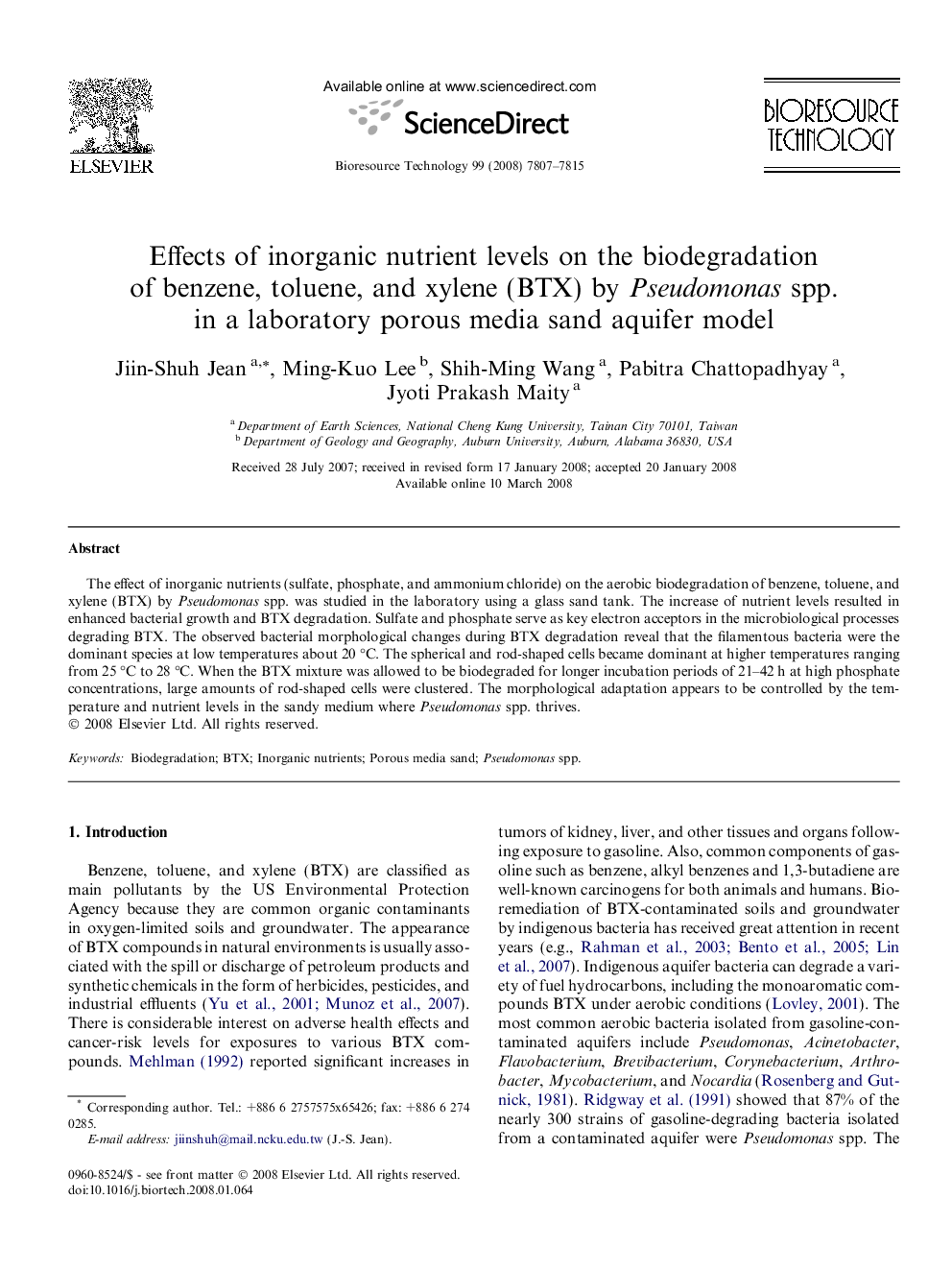| Article ID | Journal | Published Year | Pages | File Type |
|---|---|---|---|---|
| 685059 | Bioresource Technology | 2008 | 9 Pages |
The effect of inorganic nutrients (sulfate, phosphate, and ammonium chloride) on the aerobic biodegradation of benzene, toluene, and xylene (BTX) by Pseudomonas spp. was studied in the laboratory using a glass sand tank. The increase of nutrient levels resulted in enhanced bacterial growth and BTX degradation. Sulfate and phosphate serve as key electron acceptors in the microbiological processes degrading BTX. The observed bacterial morphological changes during BTX degradation reveal that the filamentous bacteria were the dominant species at low temperatures about 20 °C. The spherical and rod-shaped cells became dominant at higher temperatures ranging from 25 °C to 28 °C. When the BTX mixture was allowed to be biodegraded for longer incubation periods of 21–42 h at high phosphate concentrations, large amounts of rod-shaped cells were clustered. The morphological adaptation appears to be controlled by the temperature and nutrient levels in the sandy medium where Pseudomonas spp. thrives.
